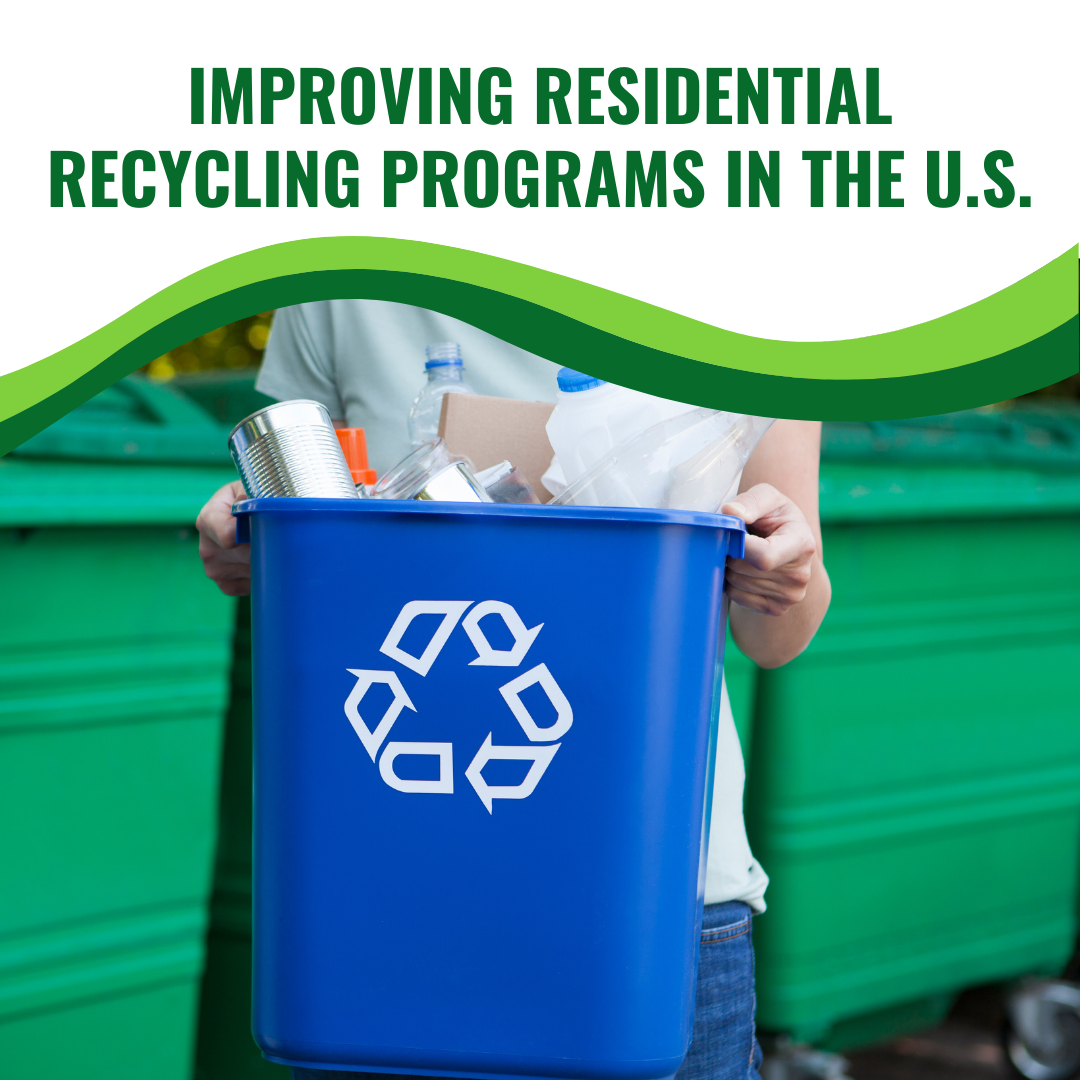We use cookies to make your experience better. To comply with the new e-Privacy directive, we need to ask for your consent to set the cookies. Learn more.
Improving Residential Recycling Programs in the U.S.
The recycling industry in the U.S. is in the midst of a dramatic overhaul. As the implications of China’s stringent contamination limits reverberate throughout the recycling ecosystem, residential recycling programs are particularly at risk.

That’s because it’s hard to control the waste stream of an entire neighborhood. Even the best-run recycling programs in the nation are likely to see considerable contamination in their recycling bins. Without careful sorting, there’s just no end market for corrupted recyclables anymore.
That market managed to grow even slimmer when, in March 2019, the government of India announced a ban on plastic scrap imports, set to take place at the end of August. (In 2018, 12 percent of U.S. plastic scrap exports went to India, a total of 294 million pounds.)
Here are a few ways the industry can reform residential recycling programs to produce cleaner recycling streams, thereby keeping waste out of landfills in the long run:
- Conduct a community-wide waste audit. It’s hard to know where you’re going before you get a clear picture of where you are. The waste audit in a residential waste-handling programs will reveal what’s ending up in the recycling bins, what isn’t, and how much opportunity you may be missing.
- Start an education program to combat “wishful recycling.” Contamination in the recycling stream doesn’t just come from indifferent residents. Too often, it also comes from a lack of education — folks who are dedicated to the idea of recycling, but who have fanciful ideas of which waste items are actually recyclable. This wishful recycling — Waste Dive magazine calls it “artificially driven diversion” — always ends in contamination. That disqualifies entire shipments of plastics and other recyclables from export to China’s processors. In the end, recyclers have to haul that waste to the landfill, at their own expense. Short of ending residential recycling entirely — a dramatic response to market shifts, but one that is far from beyond consideration among today’s industry elites — the only clear option is to educate residents. The Recycling Partnership offers free downloadable tools designed to reduce contamination through education initiatives. These include templates for signs, mailers, and cart tags, as well as a complete grab-and-go social media kit. Check out the Recycling Partnership resources here.
- Invest in new recycling infrastructure in the United States. In theory, when a production deficit develops, entrepreneurs flow into the industry to balance the equation. Yet the U.S. remains in need of new recycling processors, paper mills, and other contributors to the circular ecosystem of material wastes. Of course, the entire market is driven by demand for post-consumer waste. That’s where ordinary citizens can vote with their dollars. Raise public demand for products made from recycled plastics, metals, and papers, and — in time — the domestic circular economy will have to strengthen to keep up. That makes recycling a good bet for investors and entrepreneurs.
While China’s National Sword policy and India’s upcoming ban on plastics imports have launched a recycling crisis in the west, they also challenge the industry’s reliance on an export market.
There’s a niche in the domestic market that needs filling, which means business opportunities abound. If we can unite consumers, waste-industry insiders, and the investor class, the U.S. recycling market will emerge stronger, smarter, and more flexible than ever.
References:
Herskind, Matthias. “3 ways to profitably reform the recycling industry.” WasteDive. Industry Dive, 9 Oct. 2018. Web. 20 Mar. 2019.
Rosengren, Cole. “6 key questions for the waste and recycling industry in 2019.” WasteDive. Industry Dive, 9 Jan. 2019. Web. 20 Mar. 2019.
Smalley, Megan. “Addressing what’s broken in residential recycling.” RecyclingToday. GIE Media, 27 Feb. 2019. Web. 20 Mar. 2019.
Staub, Colin. “India confirms scrap plastic ban will be delayed.” Resource-Recycling. Resource Recycling, Inc., 19 Mar. 2019. Web. 20 Mar. 2019.
